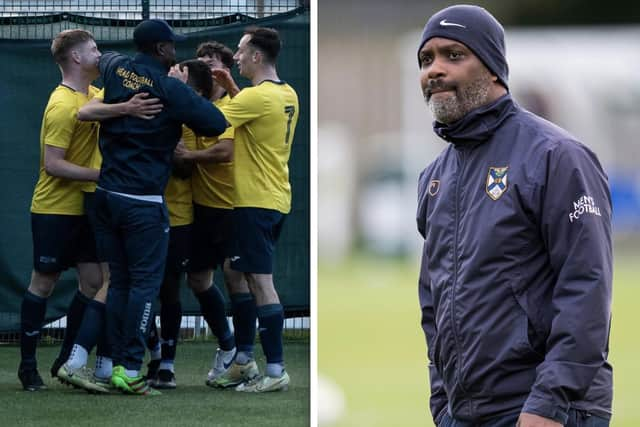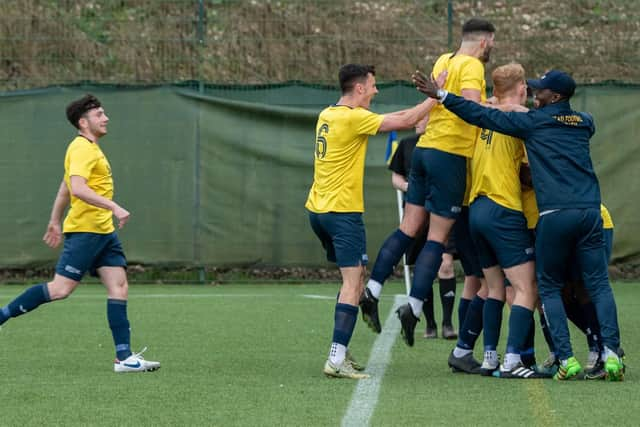University challenge: The big changes as Heriot-Watt and Edinburgh University enter new eras
and live on Freeview channel 276
The two men’s university football clubs in the Capital have both talked up their aspirations this week, but in very different circumstances. Heriot-Watt University head coach Bejay Koya believes his club can begin to attract “a higher level of athletes” after reaching the top level of British university football for the first time since the club was founded 78 years ago.
Across the city, meanwhile, rivals Edinburgh University are looking for a new head coach after announcing that Dorian Ogunro will leave the club at the end of the season after 10 years in the role and 23 years at the club. The club said in a statement that it had “undertaken a review of first team management and coaching operations as it seeks to improve its position in Scottish senior football and British University and College Sport”.
Advertisement
Hide AdAdvertisement
Hide AdIt won’t be easy to improve on what Ogunro has achieved by keeping Edinburgh University’s heads above water in an increasingly competitive and professional Lowland League without making huge structural changes. He was understood to be considering his position this time last year but stayed on to retain Edinburgh University’s place in the Lowland League for a ninth successive season.


Highly respected by those who have worked with him and opposition managers, Ogunro departs as the longest-serving head coach in the club’s 145-year history and put in an incredible amount of work into one of the most demanding jobs at this level of the game.
The university teams compete on two fronts, on Saturdays with other semi-pro clubs and on Wednesdays in inter-university competitions and both tend to be given equal importance. Club rules which limit the number of non-students who can play on a Saturday mean head coaches can’t sign new players whenever they want to or need to. They have to work with what they have available and that often means they have less experienced players than opponents.
There are other advantages available for university teams though. Stirling University’s men, for example, are essentially full-time footballers on a scholarship programme and are at the top finished fourth in the Lowland league this season. Heriot-Watt have also had sport scholarship students in their 22-man first-team squad this season for the first time and have reaped the rewards. They may be three tiers below Edinburgh and Stirling in the East of Scotland League Second Division but mainly because of historical league restructuring and they are also challenging for promotion on that front as the season reaches a climax.
Advertisement
Hide AdAdvertisement
Hide AdTheir 3-1 play-off victory over Leeds Beckett University on Wednesday means Koya’s team will be competing next season in the Premier Division of the British Universities & Colleges Sport (BUCS) League for the first time, making them more than match for their university rivals.


Koya said: “I feel a mixture of euphoria, happiness and delight for the team, the club and the university. It’s an important achievement because it elevates our status in university sports. It’s also very positive for our Sports Scholarship Programme, because it should help us attract a higher level of athletes to the university, and a higher level of sports performance as a result.”
Heriot-Watt University have six men’s teams and access to facilities at Oriam, Scotland’s national performance centre, that others can only dream of. They are definitely on the up. It will be interesting to see where Edinburgh University go from here.
